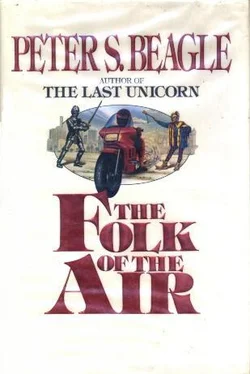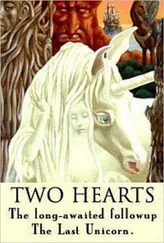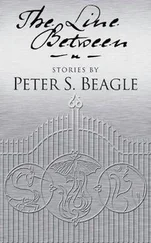“Yoro Keita,” the black man whispered. “Yoro Keita, who commanded my horsemen. Samory, Askia al-Kati, Modibo Toure, who spoke for me and knew a little of my heart. Al-Haji Umar, who was not even of my people, but a Tukulor—oh, Al-Haji Umar!” The blank voice grew stronger, a thin, old, burning wind, shaking down the lost names. “Alf a Hassan ibn Mahmud, much learned in the law—Moussa the singer, Moussa the fool—Sheik Uthman ed-Dukkali, he who spoke to me of Mecca when I could not sleep—Sekou Diakite, Okoro my steward, who was a slave once and could play on the guimbri —Bakary of Walata, my good captain—Hamani, Kango, Sangoule the Mossi—” The names fell down around Farrell until he fancied that Julie and he stood halfburied in a ruffling drift of the carved and gleaming syllables, disappearing slowly into a king’s grief.
“These are my friends,” Micah Willows said. “These will come for me.” Farrell thought he was going to fall again, but he stood still, eyes and mouth closed, his face entirely sealed shut, the ribbon-thin body in its torn robe swaying slightly from the waist up. Farrell said quietly, “Mansa Kankan Musa, sir. We’ll take you home if we can. Tell us where you want to go.”
At that, Micah Willows’ locked throat roiled and clicked for a moment; then there lunged out of it the sound that a tree makes, beginning to break in two—a fathomless, shuddering no . The black man began to cry out a single phrase, clenching his fists and laying his head further and further back, until Farrell could see the howl clawing through him, trying to tear out at elbow joints, arteries, collarbones. “ Lady help me, Lady help me, Lady help me !” The words were drowned so deep in rage and anguish that Farrell took them at first for Arabic. Micah Willows turned away from him and wandered slowly up the street, still calling and crying dreadfully, and now beating the heavy rhythm of his words out on his robed body, like any other haunted and helpless prophet.
Julie said, “Please.” Farrell went after Micah Willows and took him by the arm, turning him back toward Madame Schumann-Heink. With Julie’s help, he half towed, half carried him to the bus, shoved him into the passenger seat and locked the door. Julie climbed into the back and kneeled on the jump seat, holding Micah Willows’ shoulders. She asked, “Where are we going?”
“I only know one Lady,” Farrell said.
So they drove up through the low hills to Sia’s house with Micah Willows dozing between them, dreaming in Arabic, to judge by his occasional murmurings. Farrell told Julie what he knew of Mansa Kankan Musa. “Emperor of Mali, early fourteenth century. It was the richest kingdom in Africa then, and Timbuktu was the greatest city. Poets, philosophers, mathematicians, scientists, they came from all over to study at Mansa Musa’s court. When he made his pilgrimage to Mecca, he brought along so much gold the market was depressed for a generation. Some people think the whole Prester John legend started right there—the black Christian emperor, perfect ally against the Turks, if you could just find him. Except he was a Muslim, and long dead by then, and his kid had already let the country go to hell. But they kept on sending out expeditions to look for him.”
Julie said, “Micah’s League name was Prester John. He was one of the founders.” Micah Willows opened his eyes, smiled at them both, whispered, “Fucking doomed ,” and snuggled back down into extinct dreams.
“Yeah, I know that part,” Farrell said. “And I’m guessing that Aiffe was fooling around one pleasant afternoon, trying to call somebody through time, anybody, and she locked onto Mansa Musa, pure chance. But she only got the spirit, the soul, whatever, and it lodged in Micah’s body, pure dumb chance again. Am I right so far?
He could barely hear Julie’s reply. “It was at the Whalemas Tourney two years ago. When Garth was still king. Micah challenged him, and Garth fouled every way he could, but Micah was winning. And then she did it. She wasn’t just fooling around.” Farrell reached back to touch her hand, but it flinched under his, clutching Micah Willows’ shoulder tighter.
“You saw it happen,” he said.
Julie made a sound like heavy cloth tearing. “It was a tilt for the crown, everybody saw it. Everybody in the League knows what happened.”
“And nobody wants to know. My specialty.” Julie made no response. Farrell said, “By now it never happened at all.”
“Oh, by now he was always crazy. Ask anyone.” The bitterness in her voice dried Farrell’s own throat and nipped at his breath. She said, “He was never crazy, not ever; he’s not crazy now. He took risks, he was—he is—curious about everything, and sometimes he’d dance right on the edge of something really dumb, and I’d get scared and yell at him, and we’d have a huge fight, the kind you and I never have.” Farrell started to interrupt, but changed his mind. Julie was crying now. “But he is not crazy. In this whole town full of crazies, he might be the only one who isn’t.”
When they pulled up in front of the shaggy house on Scotia Street, Micah Willows descended to the curb without assistance, sniffing the midnight air delicately and smiling with a curious drowsy serenity. “Oh, here,” he said softly and moved toward the house, floating over the grass like a giraffe, which is a creature made entirely of shadows. Following with Julie, Farrell thought that the door began to open just before he knocked.
She wore a brown dress, as shapeless as Farrell’s zoo uniform had been, and less becoming: it made her look thicker and shorter-legged than she actually was and slumped her breasts and belly into one bolster-roll of mashed potatoes. But Farrell saw that she stood in the doorway with the still acceptance of her body that he had only known in a few women who had never in all their lives imagined themselves not beautiful, not even for a single bad moment, in pain, despairing. Micah Willows knelt at her feet and spoke to her in medieval Arabic, and she answered him in the same tongue, soothing and reassuring. But there was something astonishingly close to fear in her voice as she asked, “Why have you brought him to me?”
The question was addressed to Farrell, but it was Julie who answered. “You’re supposed to be a healer. He needs to be healed.”
Sia said, “He may be beyond my healing. Many things are.” She stooped over Micah Willows, and something about her creased bent neck stung Farrell’s heart. The twinge lasted until she lifted the black man effortlessly in her arms and carried him through the doorway into her house. Without turning, she said to Farrell, “Joe, call Briseis. You , if you care for him, come inside.” Julie looked at Farrell and followed her, and Farrell went off around the birdhouses to winkle the dog out of her favorite nest behind Ben’s compost pile.
When he returned with a more than usually apprehensive Briseis skulking behind him, Sia and Julie had already settled Micah Willows on a frayed rag rug before the fireplace. Julie moved around the living room as Sia directed her, lighting incense in some burners and not in others. Sia herself squatted beside Micah Willows, touching his face and chest and his sweaty hair, while he held her free left hand, smiling at her with his eyes wide open. She said, “Start the fire, Joe.”
The room felt stuffy and overheated, but Farrell arranged logs, newspaper, and kindling without question, tossing on equally obediently the strange spiky bundles that Sia gave him. Most of them smelled bad when he held them, and worse when he added them to the fire—and at least one wriggled in his hand—but each changed the color of the flames, from yellow to blue, blue to blood-red, red to sunset-green, and from green to various shades of purple and gray and slug-white, such as had no business on any hearth in any home. The last packet, and the word she spoke, made the flames turn black and answer her, and Sia, still crouching, turned heavily to face Farrell and Julie.
Читать дальше












